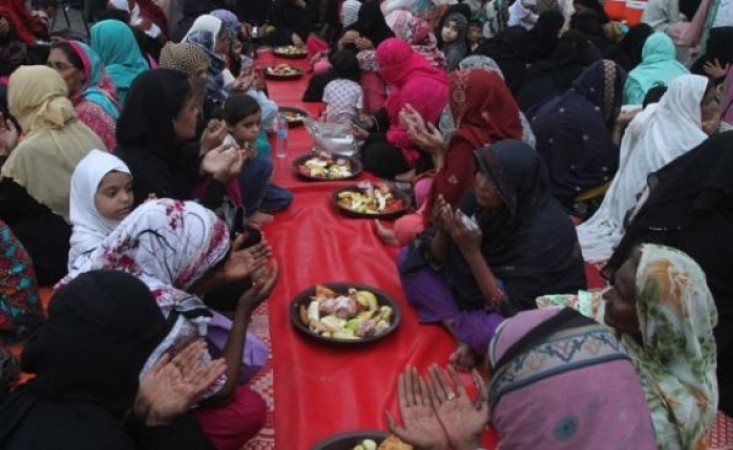
Islamabad: With the holy month of Ramzan drawing to a close, shoppers in financially struggling Pakistan are feeling the weight of longstanding inflation as they strive to purchase commodities essential for Eid, facing high prices.
Traditionally, families in Pakistan flock to markets and shopping centers in the final week of Ramzan in search of new clothes, shoes, and jewelry. However, prices have soared in the past year, doubling during the same period, as Pakistan grapples with a severe economic crisis. Eid-ul-Fitr, marking the end of Ramzan, is expected to occur on April 10 in Pakistan, contingent upon the sighting of the crescent moon.
Local shopkeeper Mohammad Fawad noted that people are now only able to afford to buy one item compared to four items last year due to the skyrocketing prices.
"Prices have increased more than four or five times since last year. People’s buying power can be gauged from the fact that the person who could buy four items last year is only buying one this year," he remarked.
"And the person who has children is only buying stuff for his kids; he is doing no shopping for himself. You can say that prices are changing faster than the dates. Dates change slower. That’s how bad the situation is," he added.
In May last year, Pakistan experienced a record annual inflation rate of 38 percent. Although the inflation rate has since decreased, it remains in the double digits. According to reports from Pakistan media, the inflation rate for March this year stands at 20.68 percent, down from 23.10 percent in February.
A housewife shopping for clothes expressed frustration at the "exorbitant" prices despite bargaining with shopkeepers.
"So far I have bought some clothes, but they have cost us way too much. The prices are exorbitant. We tried haggling, but they only reduced the prices very little," she lamented.
Echoing similar sentiments, Lahore resident Ahmed Moghul commented, "Inflation is very much there. There is no doubt that things are too costly. But obviously we have to buy something for the kids. No getting away from that."
IMF PROVIDES $1.1 BILLION AID PACKAGE TO PAKISTAN
Earlier in the week, the International Monetary Fund (IMF) announced a staff-level agreement for the release of USD 1.1 billion to support Pakistan's struggling economy.
The announcement followed talks between an IMF team and the government led by Shehbaz Sharif in Islamabad last month.
In a statement, the IMF acknowledged that Pakistan's "economic and financial position improved" in recent months. However, the global lending agency projected modest growth for the country this year.
"Ongoing policy and reform efforts are required to address Pakistan’s deep-seated economic vulnerabilities amidst the ongoing challenges posed by elevated external and domestic financing needs and an unsettled external environment," the IMF emphasized.
Pakistan's external debt exceeds USD 130 billion, with foreign reserves standing at just USD 8 billion. Over the past two years, the country's currency has depreciated by more than 50 percent against the US dollar.
Afghan Students Expelled from Gujarat University Hostel Amid Namaz Controversy
Akhilesh Yadav's Scheduled Visit to Mukhtar Ansari's Ancestral Home in Ghazipur